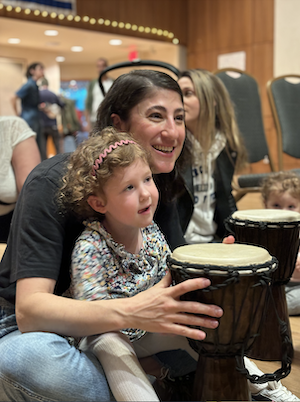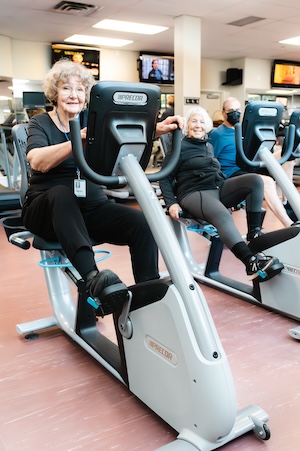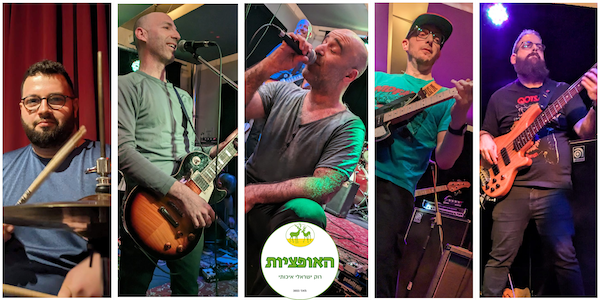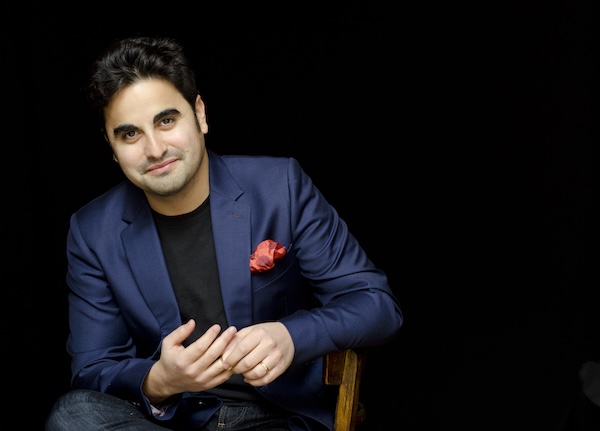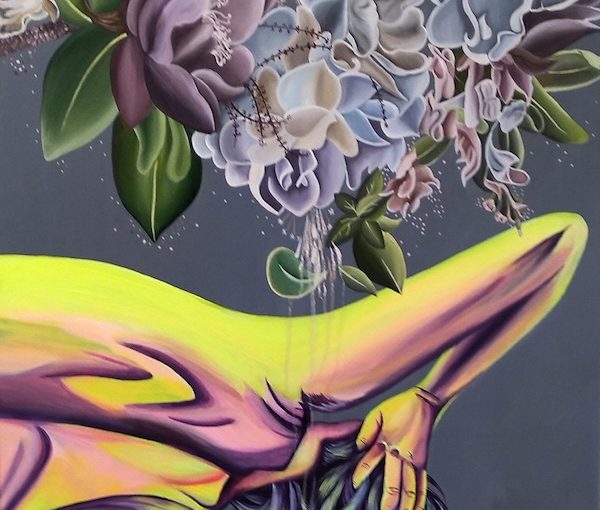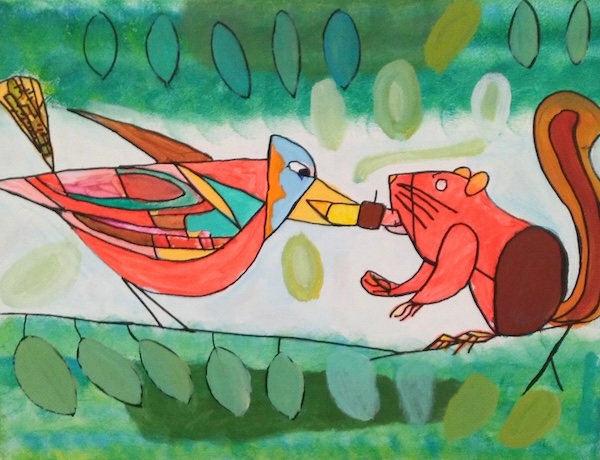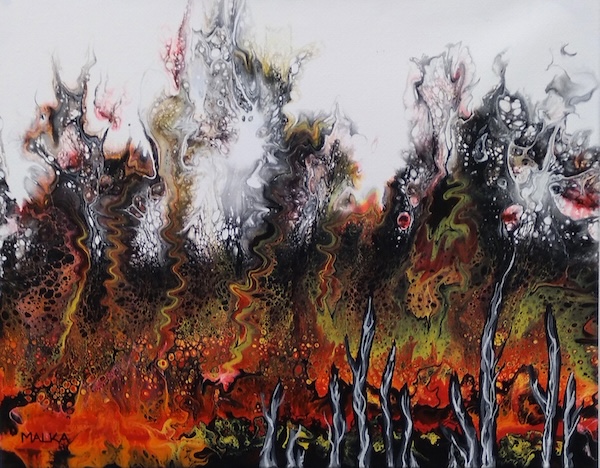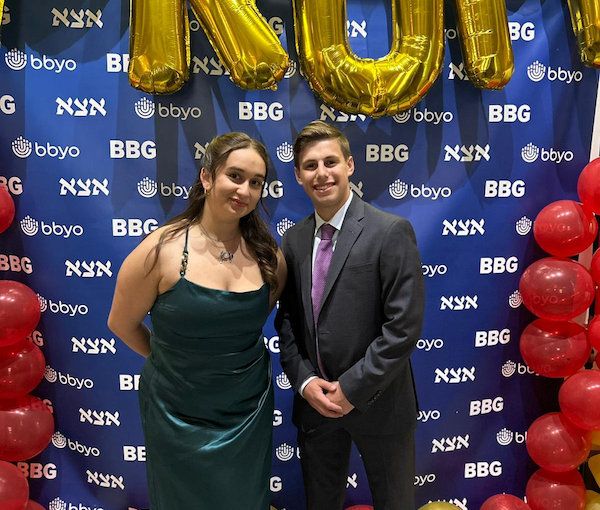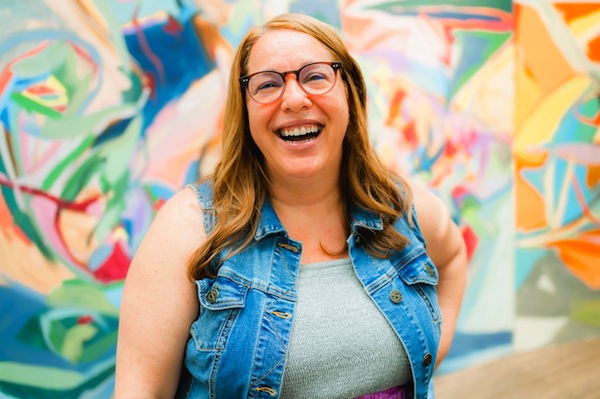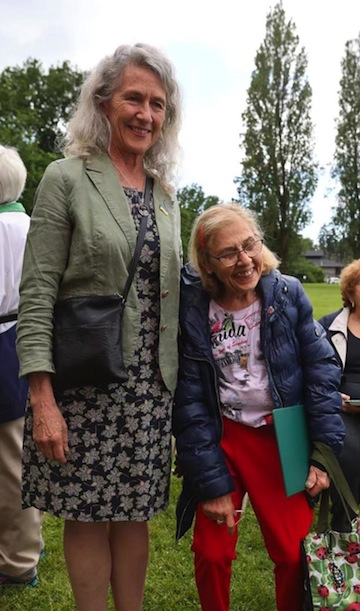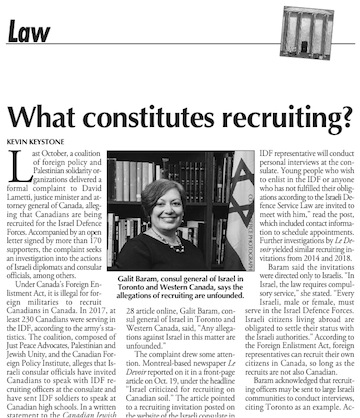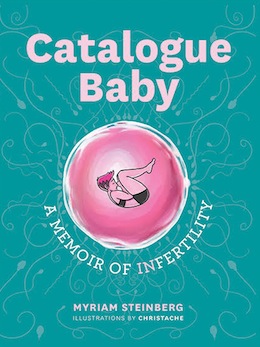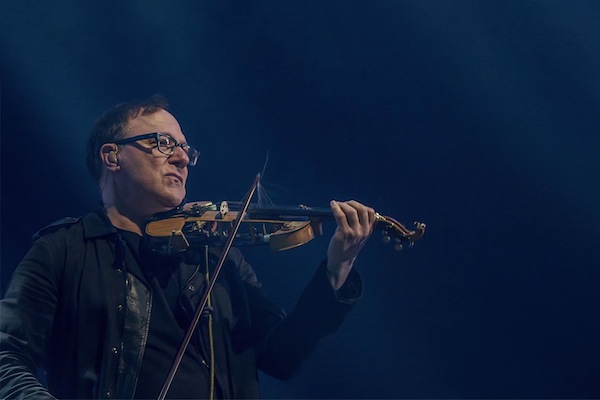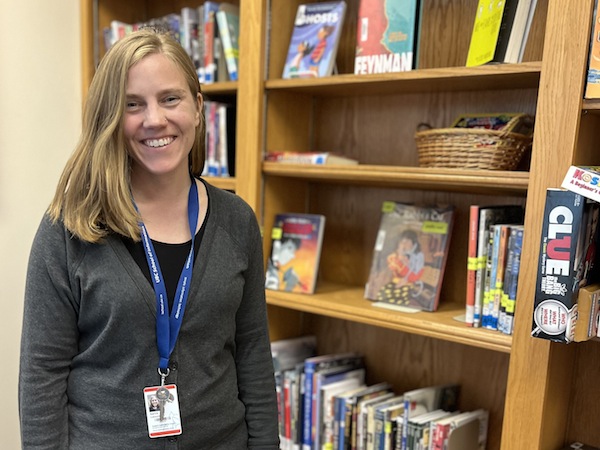A drawing of the new Jewish campus at Oak Street and 41st Avenue. (image from Jewish Federation)
With construction of the new Jewish campus at Oak Street and 41st Avenue set to begin in spring 2026, many in our community still have questions. What exactly is JWest? Is it replacing the Jewish Community Centre of Greater Vancouver? What about King David High School? Here are some answers to those questions.
JWest is the name of the redevelopment project and the campaign behind it. It is not a new name for the JCC, which will continue to serve as a hub for wellness, learning, culture and community connection. JWest is the vision, planning and fundraising effort driving the creation of a new, integrated Jewish campus that includes a new, expanded JCC and KDHS, and two residential rental towers.
Inside the new JCC
The new JCC will be a six-storey, 200,000-square-foot facility designed with inclusion, flexibility and sustainability at its core. Among its many features, it will include an eight-lane, 25-metre swimming pool and significantly expanded fitness and wellness spaces to support active living for all ages.
Families will benefit from a much larger childcare centre, complete with a rooftop outdoor play area. The facility will also house two full gymnasiums, universal changerooms with private cubicles for added comfort and accessibility, and a multi-function theatre with retractable seating and full wheelchair access – ideal for performances, films and community events.
At the heart of the building, a larger welcoming café will serve as a natural gathering space, while a new, purpose-built home for the Vancouver Holocaust Education Centre will provide enhanced opportunities for learning and remembrance.

The JCC has long been a home for a wide range of Jewish organizations – and that legacy will continue in the new campus. In fact, the new facility is designed to foster even greater collaboration and increased programming for all ages and interests.
While the list is still being finalized, most of the community partners and organizations currently housed in the JCC will move into the new building, joined by some new partners who will bring fresh energy and offerings to the campus.
Why a new KDHS
KDHS has been a vital part of Jewish life in Vancouver for decades, but, like the current JCC, the school has outgrown its space. The existing building cannot support further enrolment growth or accommodate the full scope of programs and facilities that today’s students – and tomorrow’s – need to thrive.
Also, the current school and the JCC are separated by a big parking lot and a busy street, which makes it hard to have shared programs, casual interactions, or really feel like part of one community. The new campus changes that. By bringing the school and the JCC right next to each other, it will become a true shared space. With students spending time at the JCC every day, the whole place will be filled with energy, laughter and activity. This kind of daily connection will open the door for more collaboration between teachers, families and community members, and help everyone feel like they belong. It won’t be just a campus but a place where Jewish life can grow and be shared across generations.
The phased approach to construction ensures that both the JCC and KDHS will remain fully operational in their current buildings throughout the project. Each organization will only move once its new home is ready, minimizing disruption and allowing continuity in programs, services and learning.
The residential towers
The two planned residential rental towers are an essential part of the long-term sustainability of the new campus. They are designed to generate stable, ongoing revenue that will help support the operations and maintenance of the entire site. In addition to strengthening the financial foundation of the project, the towers will contribute to addressing Vancouver’s broader need for rental housing. They will include below-market rental units, providing much-needed affordable housing options for members of the Jewish community and others in need.
During construction?
Construction will begin in spring 2026, starting in the current JCC parking lot. Once the new JCC is complete – estimated at about three years – the current building will be removed to make space for the new KDHS, outdoor areas, residential towers and long-term parking. Throughout construction, the current JCC will remain open, and all programs and services will continue.
JWest is working closely with Grosvenor, the developer behind the Mayfair West project across 41st Avenue, to coordinate temporary parking for JCC members, staff and visitors. While final details are still being confirmed, this location is expected to be the primary parking option during construction. At the same time, drop-off and pick up zones will be provided at the current JCC building for the childcare centre and for people with limited mobility.
Funding for JWest
Thanks to the extraordinary generosity of donors – and major support from the governments of British Columbia and Canada – more than 90% of the required funds have already been raised. As the project prepares to break ground, the final phase of the campaign will soon launch. This next stage is a chance for everyone in the community to take part and help shape the future.
Why this matters
“I truly believe that, together, we’re creating something special – a vibrant new Jewish campus that brings out the best of our community and our city. This is what we do,” said Alex Cristall, chair of the JWest Foundation. “We come together and we invest in our future because we care deeply about it. This new campus isn’t just about buildings – it’s about building a home for Jewish life, culture and values in British Columbia that will last for generations.”
JWest will continue to share updates – including construction timelines, additional parking details and news about the public phase of the campaign – in the months ahead. Visit JWestNow.com.
– Courtesy Jewish Federation of Greater Vancouver




